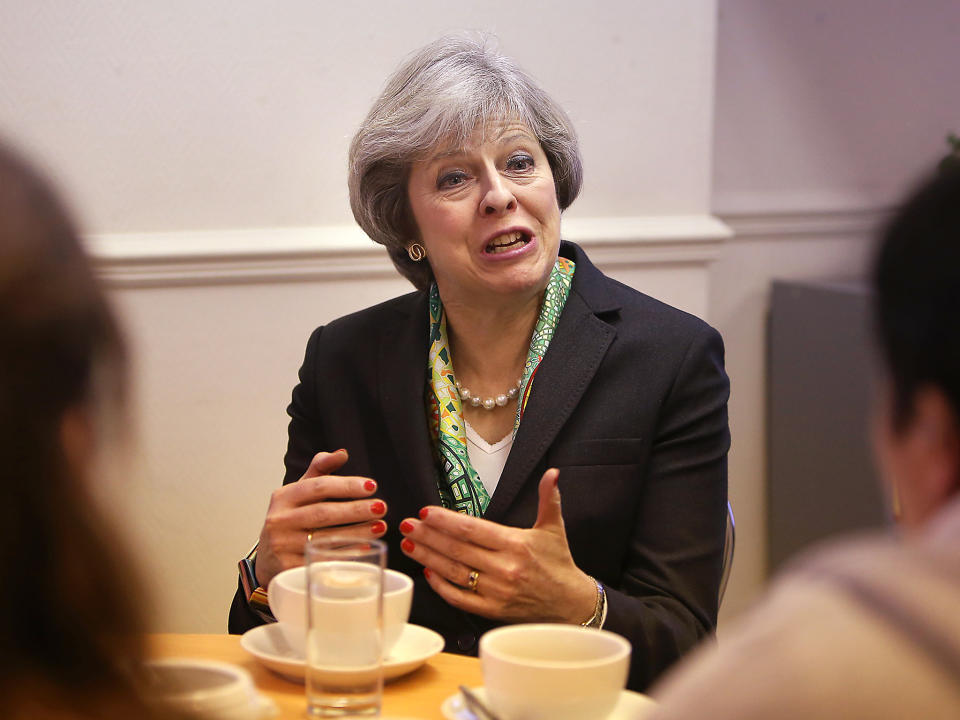Maybe Theresa May needs to inform the DWP about her position on mental health

Theresa May, standing outside Downing Street after meeting the Queen to confirm her position as Prime Minister on 13 July 2016, said: “If you suffer from mental health problems, there’s not enough help to hand”. A few months later, she wrote “While this government legislated for ‘parity of esteem’ in healthcare – so that whatever your illness, physical or mental, you are treated the same – very often the treatment for those with mental illnesses is inadequate”.
Does the Prime Minister who said this know what her Government is doing? Does she meet with the DWP and try to understand how her policies are affecting people dealing with mental health conditions? One hopes not; the alternative is outright duplicity, because her rhetoric couldn’t be more different from the reality.
May is apparently very willing to offer help on mental health matters while standing on a podium in front of a press pack. It’s a different story when it comes to the fine detail. Right now, the Department for Work and Pensions is actively disrupting the “parity of esteem” between mental and physical health that the Prime Minister claims to desire through its handling of personal independence payments.
The Government is scrambling around trying to introduce emergency legislation to circumvent a tribunal ruling which stated that disability benefit claimants with mental health issues should be entitled to the same amount of support to help them to live an independent life as those affected by physical illness or disability. The tribunal, brought by claimants appealing DWP decisions, decided that the department had acted unfairly towards these individuals.
The Government’s response? Not, despite May’s earlier concerns, to show that they were listening to the concerns of claimants. Instead, it has hastily rewritten the criteria for PIP assessment so that those with mental health issues are no longer entitled to a benefit that the tribunal ruled they were.
Theresa May delivers the warm words; her policy chief George Freeman shows the cold shoulder.
Last month, Freeman said the changes made to the benefit criteria by the DWP were “tweaks”, aimed at “people who take pills at home who suffer from anxiety”. He argued that the exclusion of mental health conditions would “get the money to the really disabled people who need it”. Justifying the statement later, he later said that his “point was that these PIP reforms are partly about rolling back some frankly bizarre decisions in tribunals which have seen money that should go to the most disabled spent on people with really much less urgent conditions.”
The DWP has told assessors that those with mental health issues whose mobility is reduced due to this should not be entitled to one of the components of mobility benefits – even if their mobility is so severely disrupted that it matches that of a claimant with a physical disability.
One wonders if the minister for work and pensions, Damian Green, has ever come into contact with an individual who has such a severe mental illness that they are restricted physically. The DWP said that “Ministers frequently meet with disabled people… and disability organisations to have a thorough understanding of the issues disabled people face” – yet the charity Scope says it was not consulted before the changes to PIP were announced.
The department responded to the controversy by saying: “Recent legal cases have broadened the way the PIP assessment criteria are interpreted. We need to clarify the criteria to restore the original aim of the policy and make sure we are giving the most support to those with the highest additional costs associated with their disability… this will not result in any claimants seeing a reduction in the amount of PIP previously awarded”.
However, disability charities agree that’s just not true. A spokesperson for Scope said: “There are a significant number of people who would’ve received a higher rate for mobility if the Upper Tribunal’s rulings were to stand… people who have their PIP award reassessed, or new claimants applying for PIP, [now] risk receiving a lower rate of PIP than otherwise.”
The Government can talk about “parity of esteem” all it likes but, as in all things, actions speak louder than words.
A few months ago, someone said “It is time for Government to do more…the need is urgent: the number of girls saying they’ve self-harmed has more than trebled in recent years … I want to see the stigma stripped away so that no one in this country feels unable to talk about what they’re going through or seek help.”
That woman was Theresa May, the very woman who is letting her own Government department actively discriminate against the people she so wishes to help.

 Yahoo News
Yahoo News 